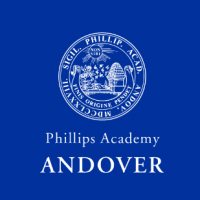STATEMENT OF PURPOSE
Phillips Academy’s Constitution charges the faculty to teach “youth from every quarter” to aspire equally to knowledge and goodness. This obligation challenges students to develop what is finest in themselves and others, for others and themselves. Phillips Academy is committed to nurturing an intentionally diverse, inclusive community that encourages students and adults to respect, inspire, and learn from one another. Guided by the ideal of non sibi, leading lives “not for self,” the Phillips Academy community promotes a balance of intellectual curiosity, engagement, leadership, and service in the pursuit of excellence: academic, civic, and moral.
STATEMENT OF VALUES
Non Sibi
We strive to embody the ideal of non sibi, (not for self) with intentional teaching, learning, and engagement guided by a sense of responsibility toward the global community and natural world.
Youth from Every Quarter
We are committed to creating an equitable and inclusive school in which students from diverse backgrounds, cultures, and experiences—including race, ethnicity, nationality, gender, socioeconomic class, sexual orientation, gender identity, religion, and ability—learn and grow together.
Knowledge and Goodness
We challenge students in mind, body, and spirit such that they may pursue the knowledge, develop the skills, and sustain the integrity needed to lead a responsible, fulfilling life.
A VISION OF THE ACADEMIC PROGRAM
In its 1778 constitution, Phillips Academy is charged with ensuring its students learn “the great end and real business of living.” Inspired by this charge, we seek to cultivate in our students the capacities—among them analytical rigor, imaginative thought, and nuanced skepticism— necessary to identify and attain a great and worthy end: human flourishing. Our founders knew that adolescence is formative. By introducing our students to the diversity of human experience and to the complexities of the natural world, we push them to understand the world as it is. By fostering their abilities to question beliefs, systems, and the ways things are done, we press them to envision the world they seek to create.
To prepare its students for life in the world, Phillips Academy offers a liberal education. Oriented to all aspects of human experience, liberal education affirms that knowledge is intrinsically good and denies that education terminates with technical skill or professional success. Resisting specialization in favor of breadth, it initiates students into connected fields of understanding and prepares them to lead lives characterized by learning and understanding, responsibility and freedom.
The practice of responsibility and freedom demands that citizens have dispositions of the critical mind to recognize fact and valid argument and to comprehend the implications of the knowledge they produce and the things they create. It requires that citizens act against intolerance and injustice and build communities conducive to human flourishing. To help students become such citizens, Phillips Academy seeks to prepare graduates who are educated broadly, discerning of ideologies, and committed to the public good.

